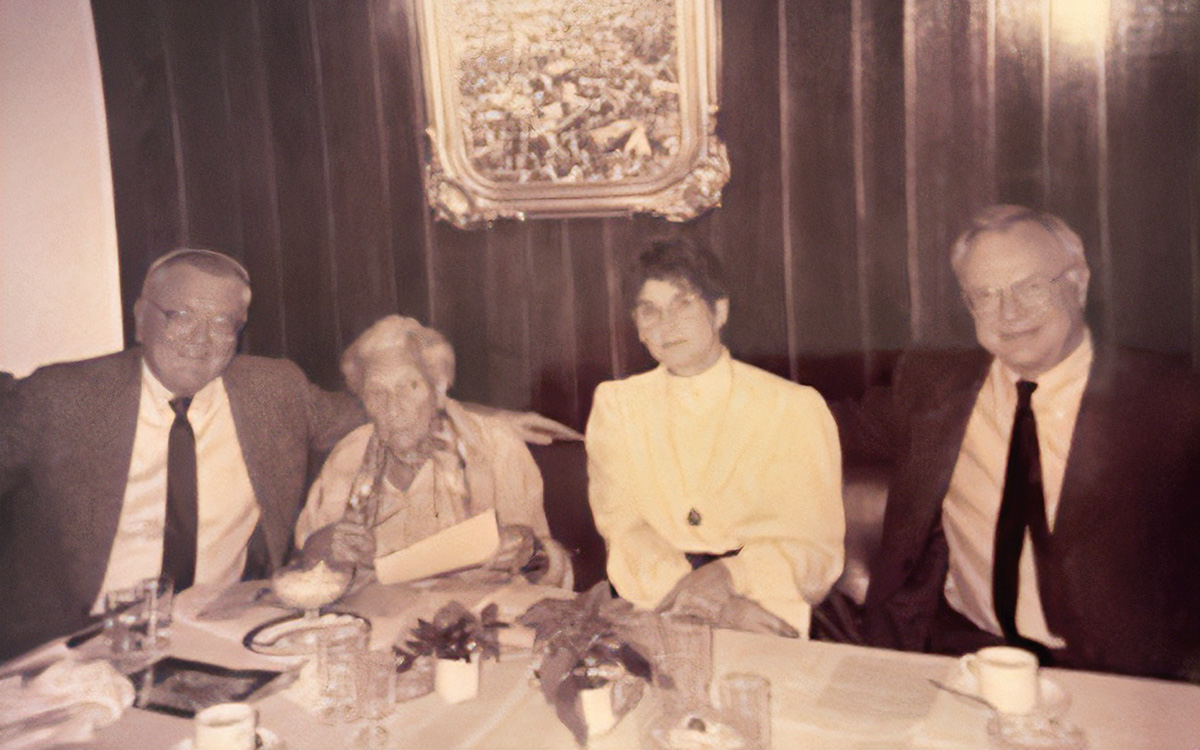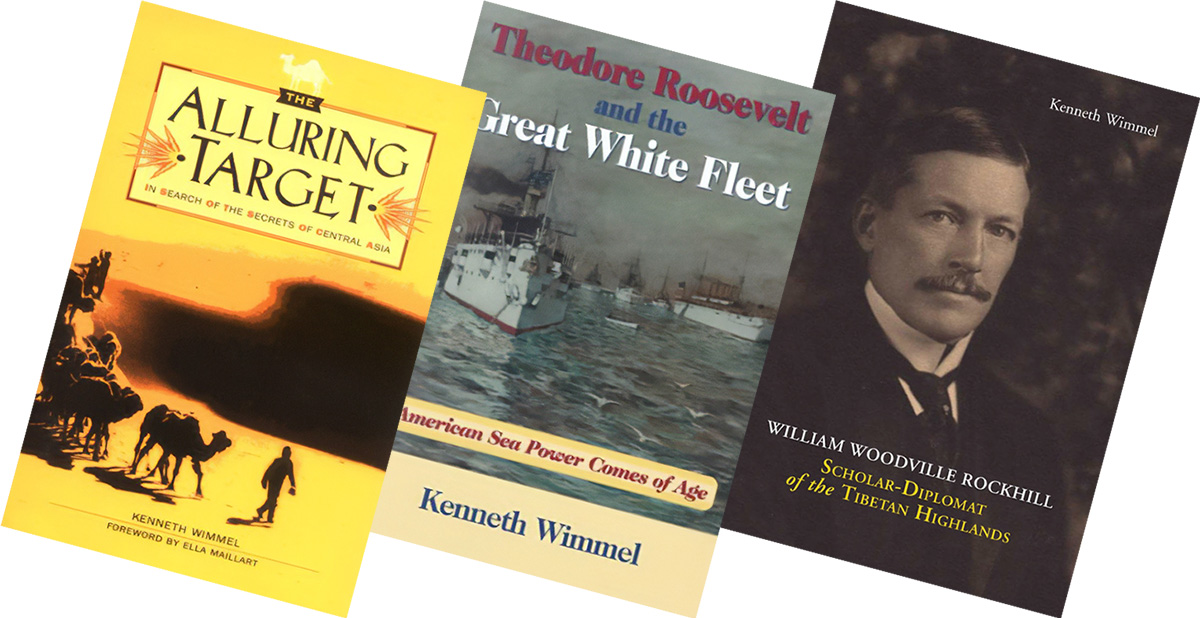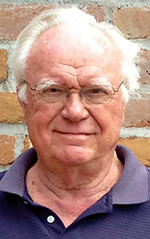Remembering Kenneth Wimmel: Diplomat, Writer, Historian
Reflections
BY DON HAUSRATH

From left, Kenneth Wimmel, travel writer Ella Maillart, Sydney Hausrath, and Don Hausrath in Geneva, Switzerland, in November 1994.
Courtesy of Don Hausrath
In 1991 my colleague and friend Foreign Service Officer Kenneth C. Wimmel retired from the U.S. Information Agency and launched a distinguished late career as a nonfiction writer. By the time of his passing nine years later, his work had earned a place in libraries worldwide, including Harvard and Oxford, and the national archives of France, China, and Germany.
A self-taught historian, Wimmel first demonstrated his research skills by winning a Naval War College prize for an essay on the strategic decision to establish a military base in the Indian Ocean.
Wimmel’s diplomatic career took him across Asia, beginning in 1963 in New Delhi, where he married Arati Sinha. His overseas assignments included Dhaka, Saigon, Kuala Lumpur, Taipei, and beyond, stoking his interest in Asia.
Inspired to write a biography of American explorer Roy Chapman Andrews, famous for discovering a cache of dinosaur eggs in Mongolia in 1923, Wimmel had to pivot after Andrews’ papers were reserved for an authorized biographer. He repurposed his research into his first book, The Alluring Target: In Search of the Secrets of Central Asia.
During the book’s development, Wimmel discovered that one of his subjects, 91-year-old Ella Maillart, was still alive. He met me in Vienna, and we traveled together to Geneva, stopping in Aix-en-Provence to visit the archives of another subject, Alexandra David-Néel.
In Geneva, Ella shared vivid recollections of camel, horseback, and mule journeys across Central Asia. “It can’t happen today,” she reflected. Struck by her words, Wimmel persuaded her to let them serve as the book’s foreword.
With Ella’s introduction, The Alluring Target was published in 1996 to strong sales and critical praise. A Booklist review describes its vivid depictions of biplanes braving Himalayan gales, shootouts with Mongolian bandits, and Silk Road discoveries. Featuring figures like Swedish explorer Sven Hedin, adventurer Arnold Henry Savage Landor, and mystic David-Néel, Wimmel brought to life a world of intrigue and discovery.
Wimmel’s second book, Theodore Roosevelt and the Great White Fleet: American Sea Power Comes of Age (2000), explored America’s transformation into a global power. He chose a line from Treasure Island—“We can steer a course, but who’s to set one?” Long John Silver asks—as the epigraph for an account of Roosevelt’s push to modernize the U.S. Navy.
In 1880 the fleet was smaller than Peru’s, but Roosevelt championed its revitalization by overcoming congressional and naval resistance. By 1909 the Great White Fleet—16 coal-fired battleships—had completed a historic world tour, cementing the U.S. as a global force.

Wimmel’s final work, William Woodville Rockhill: Scholar-Diplomat of the Tibetan Highlands (2003), was published in Bangkok posthumously. The first new biography of Rockhill (1854-1914) in more than 50 years, it details his impact on U.S.-China relations.
Born in Philadelphia, Rockhill was educated in France, graduated at 19 from Saint-Cyr, France’s West Point (where he studied Tibetan), and served two years as a French Foreign Legion officer before returning to the United States. After a brief ranching stint—likely the only New Mexico rancher to translate Tibetan sutras by lantern light—he entered diplomatic service.
Rockhill’s career spanned postings in China, Russia, Türkiye, and Greece, though his heart remained in Asia. In 1888 he temporarily left diplomacy to explore Mongolia and Tibet, collecting artifacts and manuscripts. He served as an assistant secretary of State and as U.S. ambassador to China (1905-1909).
Ambassador Rockhill helped shape the U.S. Open Door Policy of 1899-1900, supporting U.S., Chinese, and East Asian interests. Thousands of his documents and artifacts remain in the Smithsonian Institution and the Library of Congress.
In an October 1978 article for The Foreign Service Journal (“What Is Public Diplomacy?,” page 31), Wimmel wrote that the U.S. government should “encourage, aid, and sponsor the broadest possible exchange of people and ideas between our country and other nations.”
Like Rockhill, Kenneth Wimmel embodied this principle.
When sharing or linking to FSJ articles online, which we welcome and encourage, please be sure to cite the magazine (The Foreign Service Journal) and the month and year of publication. Please check the permissions page for further details.


